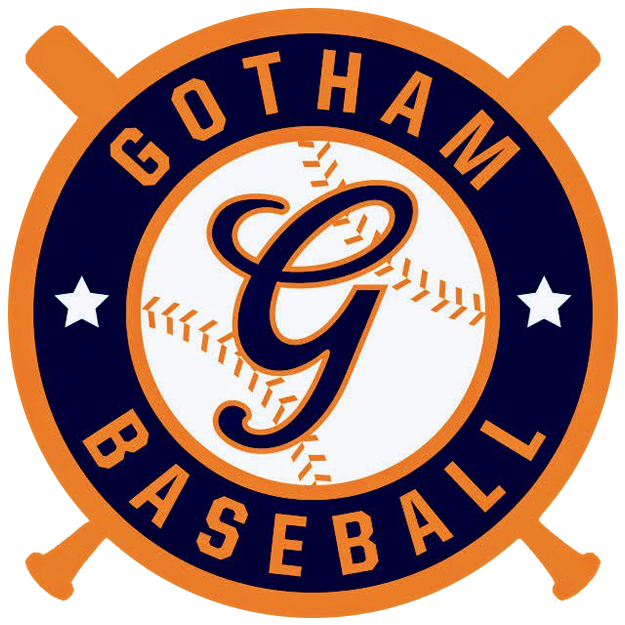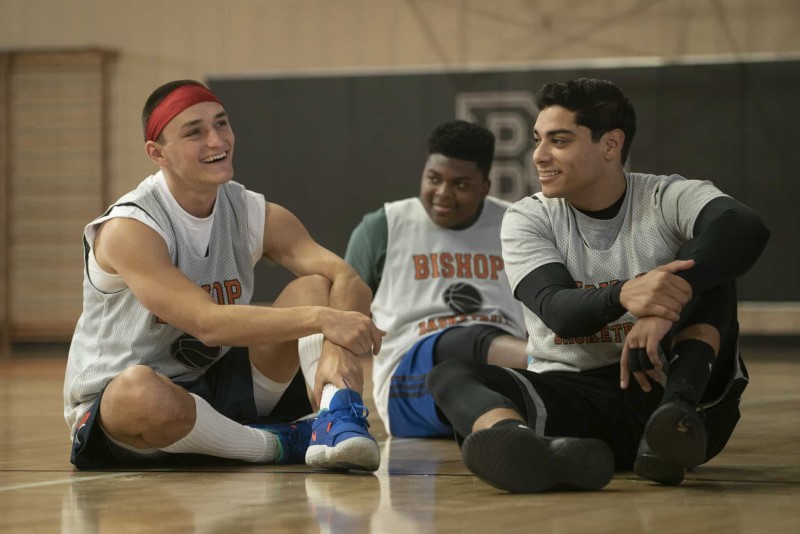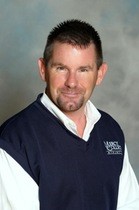Just before the cessation of activities due to COVID-19, “The Way Back,” a new film starring Ben Affleck was gaining solid traction as a sleeper hit of the spring leading into March Madness. Affleck plays Jack Cavanaugh, a former high school star who has lost his way due to a host of tragedies in life, and how sport brings him back to a still evolving but positive outcome. Including in the cast are several rising stars who also to love sports, one of which has a great tie to baseball from his upbringing in Connecticut.
Will Ropp had, and still has, a love of baseball, even as he played a high school basketball star Kenny Dawes in the latest Gavin O’Connor film, which will be out on digital March 27. He also has some other solid sports ties off the diamond, with an upcoming football project and an interest in NBA 2K. We caught up with the University of Michigan grad to learn more.
Gotham Baseball: You grew up with aspirations to play baseball at a high level, first in Connecticut and then Jacksonville in prep school. What positions and what did you love about the game?
Will Ropp: Growing up in Little League I played all over – shortstop, catcher, pitching, etc. – but when I got a little older I focused on outfield, usually center. I think one of my favorite things about the game was being able to practice and work with my dad. Some of my best memories are hitting balls in the backyard with him, going to batting cages, and traveling to other towns for playoff games.
GB: Since you started in Connecticut, Mets/ Yankees? Red Sox? Who were the players you admired and tried to emulate and why?
WR: Of those three, I’d probably choose anyone who isn’t the Yankees. For some reason I’ve never been able to get behind the Yanks, when I was growing up they just seemed so dominant and successful that it seemed like the “boring” choice to support them. My dad took me to a few games at the old Shea Stadium, so I loved watching the Mets. And the Red Sox’s 2004 World Series run was one of the most exciting sporting events I’ve seen on television. I remember watching those games with my face like two inches away from the TV, what an insane series.
GB: What was the experience Jacksonville like; play with any folks who went on to a higher level?
WR: I went to “The Bolles School” in Jacksonville, Florida for my junior and senior year of high school. I had previously played baseball in Connecticut, and I quickly learned that the difference in talent and competition between Florida and Connecticut is pretty massive. I pretty much realized the first day I got to Florida that baseball wasn’t going to work long term, which was kind of a blessing in disguise because it led me to focus on acting and theatre. A couple kids my year went pro- DJ Stewart (Orioles) and Hayden Hurst (Pirates). Hayden is a friend, and he actually stopped playing baseball to focus on football. He ended up getting drafted in the first round by the Baltimore Ravens and now plays for the Falcons. Pretty awesome story.
GB: You end up at Michigan, also a school with a great baseball tradition, one that ALMOST had Jeter before he turned pro. What was the college sports experience like at Michigan, even as someone who wasn’t a student athlete?
WR: It’s a shame Jeter never fulfilled his career at Michigan but as everyone knows, it probably worked out in his favor. Being a student at Michigan was incredible. I’m a huge football and basketball fan, which is obviously big at a school like Michigan, so I turned into a super fan pretty quick. I went to pretty much every home game for football, and tried my best to make it to as many basketball games.
Harbaugh was hired my senior year, so that was a really exciting time to be a student. I LOVED when Michigan’s baseball team went on their college World Series run last year, that was super fun to watch.
GB: Now lets go to “The Way Back.” Did any of those athletic skills honed in baseball help in the basketball experience, or was it starting over?
WR: I think that if you play any sport, those athletic abilities will give you a head start on learning something different. However, skill wise, not a lot translate between basketball and baseball, so I really had to start over when it came to basketball. Especially shooting. My character is the three point shooter on the team in “The Way Back”, so I really had to learn the fundamentals of shooting.
GB: Ben Affleck is the coach in the film; any of his work as a coach remind you of coaches you played for, or ones you have followed? Any little nuances?
WR: In the movie, Ben gets pretty heated when calls don’t go his way, and isn’t afraid to drop some expletives. I remember playing baseball growing up, you would have your friend’s dad or someone as your coach, and you would see sides of that person in the game that you never thought existed… arguing with the umps, dropping F bombs… that kind of stuff. I think when situations get really competitive, the filter comes off. I always thought it was funny as a kid, seeing these adults kind of freak out when calls don’t go their way.
 GB: You guys talked a lot about the experience of being part of a team and how that helped the creative process for the film; what are the elements of being around a baseball team when you were younger similar to what you have gone though as an actor, especially with this film?
GB: You guys talked a lot about the experience of being part of a team and how that helped the creative process for the film; what are the elements of being around a baseball team when you were younger similar to what you have gone though as an actor, especially with this film?
WR: You definitely develop a camaraderie with a baseball team pretty quick. There’s so much downtime at practice and in games that you’re constantly bonding with teammates and having conversations. I felt that on set for this film for sure. In between takes and set ups, all the players would just be hanging out, talking about random stuff, and having fun. Even Ben got it on it too, we had some amazing times during the filming, by the end of the shoot, we were a real team. We were family.
GB: Have you followed the Dodgers since the move to LA? They have made some great moves, especially with Mookie Betts, this offseason.
WR: Well with the Corona Virus pretty much all the sports I follow (including baseball) are now suspended… so I’ve been going through major withdrawals. I hope that everyone stays safe and isolates so that we can get this virus under control and have all facets of life return to normal… including professional sports…
GB: You have a football project coming up as well; what is that going to be like, and lastly, what is it about sports and film that works so well; do you have a favorite film, maybe a baseball one?
WR: Yes! “FanGirl”, is a comedy television show I’m developing with Jenn Welter, the NFL’s first female coach. We’re currently shopping it around, so I’m hoping we’re able to start production pretty soon. I think that sports shows a group of people working towards one common goal… and in doing that, you develop as people and individuals. You develop a camaraderie that changes you for the better. You’re also able to see the story of the underdog, the one that wasn’t supposed to win, the one that was counted out. Everybody loves to see the underdog make a comeback. “Little Big League” was my FAVORITE baseball film growing up. It’s about a little kid who inherits the Minnesota Twins from his grandpa and basically hires himself as the club’s manager.
It’s fantastic.


